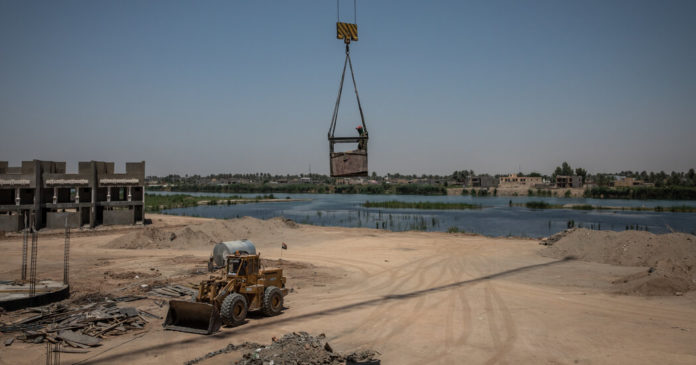Now, Iraqi investors who had focused on projects outside the country over the past 18 years are bringing some of their profits back to Anbar, while foreign companies are taking a new look at a city largely rebuilt after the fight against the Islamic State.
While some residential areas still lie in ruins, government-funded building has transformed the city. Instead of traffic-choked, potholed streets and nests of hanging electrical wires ubiquitous in other Iraqi cities, Ramadi now boasts a reorganized road system, underground electricity cables, and centralized government offices.
“We came back to destruction and decided that any new construction must be done in a new way to keep up with modern urban planning,” said Anbar’s provincial governor, Ali Farhan. He said that having experienced so much destruction, Anbar residents are no longer willing to tolerate the extremist rhetoric that allowed ISIS to gain a foothold here.
When ISIS captured Ramadi in 2015, the poor in this city of half a million people fled to the desert to a squalid makeshift camp for displaced Iraqis. Government authorities, worried about ISIS infiltration — a suspicion that lingered from the past — barred most of the displaced from Ramadi from entering the capital, Baghdad, just a few miles away.
But many of the Ramadi residents who could afford to do so moved to Iraq’s Kurdistan Region in the north, or left the country for Jordan or Turkey. When they returned, younger people in particular wanted the malls and coffee shops and hotels they had become accustomed to. In the gleaming new supermarkets of Ramadi, Starbucks coffee and gluten-free flour line the shelves.
“This will be a recreation hub, not just a hotel,” said Maher Othman, the Iraqi contractor for the new Ramadi hotel, which does not yet have a name. He said his company, Jazirat al-Atta, planned to spend at least $20 million of the total construction cost on swimming pools, restaurants, shops and a Moroccan-style spa.
Source : Nytimes











